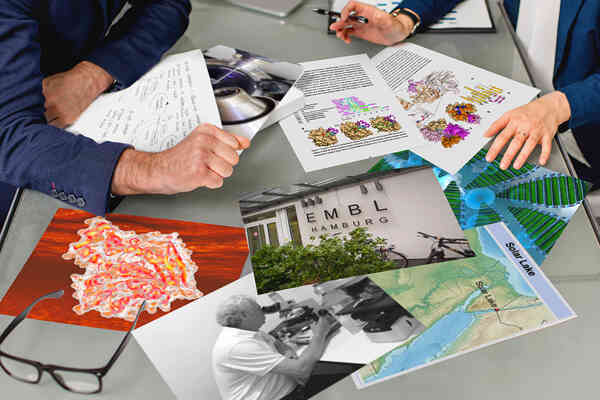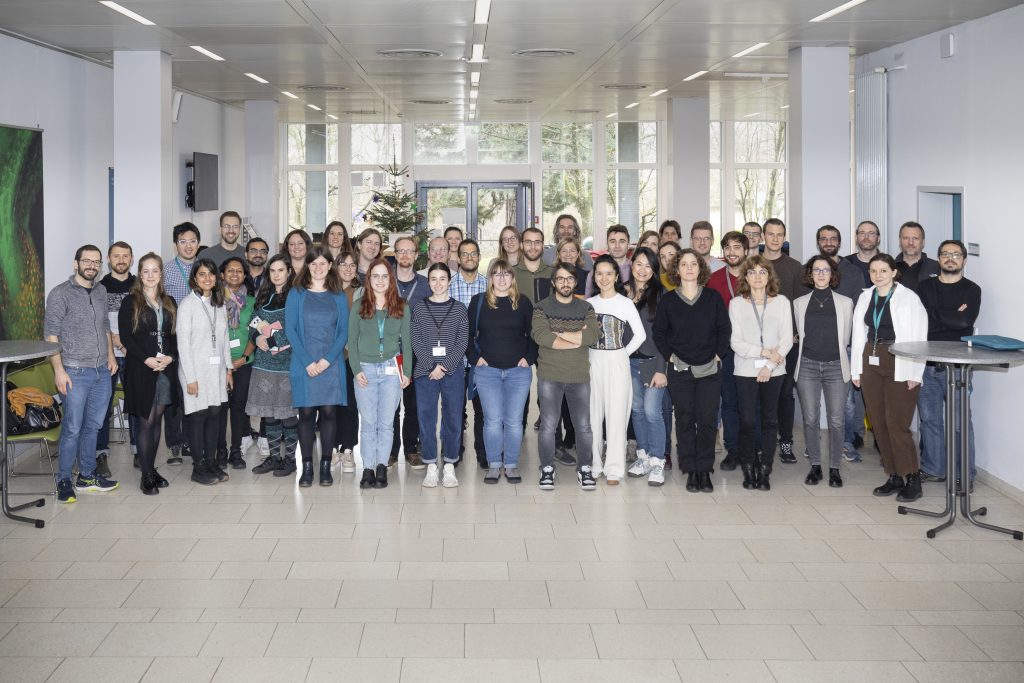
Archaea, the ultimate survivor
Possibly the least researched microorganism domain, archaea seem to survive anywhere. Yet it is extraordinarily challenging to study and unlock their secrets of adaptability. EMBL researchers hope to …
EditDissecting microbial functions and communities to understand how microbes interact with their environments

Possibly the least researched microorganism domain, archaea seem to survive anywhere. Yet it is extraordinarily challenging to study and unlock their secrets of adaptability. EMBL researchers hope to …
Edit
Scientists have discovered that gut bacteria can alter molecular signatures in the brain, using a brand new method to study how carbohydrates modify proteins.
Edit
New Head of the Microbial Automation and Culturomics Core Facility discusses her career, her goals for the facility, and her early inspirations.
Edit
Scientists have developed a new machine-learning model to predict microbial load — the density of microbes in our guts — and used it to demonstrate how microbial load plays an important role in diseas…
Edit
EMBL’s Scientific Visitor Programme enables high-level scientific exchange and cross-fertilisation of ideas and technologies through sabbatical fellowships for researchers.
Edit
EMBL Heidelberg researchers compared the effect of drugs on isolated bacteria versus those growing in communities. This is the first study showing that bacteria are more resilient when in community du…
Edit
Julia Mahamid and Nassos Typas reflect on the direction of the Molecular Systems Biology Unit they now lead at EMBL Heidelberg.
Edit
Study shows that gut bacteria can metabolise carcinogens and cause them to accumulate in distant organs, leading to tumour development.
Edit
EMBL and partners announce ‘Amplifying Funds in Infection Biology’ to foster interdisciplinary and collaborative research in infection biology.
Edit
EMBL researchers and their partners have been studying microbial functions and interactions for the benefit of human and planetary health for the last two decades.
Edit
Scientists from EMBL Rome and EMBL Heidelberg found that disrupting the gut microbiome of male mice increases the risk of disease in their offspring. Their findings suggest that a father’s pre-concept…
Edit
An interdisciplinary collaboration between Hamburg scientists has yielded new insights into the structure and function of a heat-resistant enzyme from an exotic microbe. In this interview, EMBL Hambur…
Edit
Jan Kosinski, Julia Mahamid, and Georg Zeller have received grants to enable ambitious projects aimed at mapping the cellular protein synthesis machinery in context and understanding complex host-micr…
Edit
Here are six takeaways from a recent EMBO/EMBL symposium that brought together scientists to discuss the state of research involving the human microbiome and its connection to health and disease.
Edit
In an extensive investigation, EMBL researchers have tested over 10,000 drug combinations against some of the leading pathogenic bacteria carrying antimicrobial resistance and causing mortality.
Edit
Jordi van Gestel and Maria Zimmermann-Kogadeeva each receive 1.5 million EUR funding for research projects on microbial predators and the gut microbiome respectively
Edit
Rob Finn, one of the co-chairs of the Microbial Ecosystems theme, discusses his work, the challenges of multidisciplinary research, and how the theme is already helping to promote the exchange of scie…
Edit
To identify which drugs disrupt bacterial envelope integrity, the Typas group uses a molecule called chlorophenyl red-β-D-galactopyranoside.
Edit
Three EMBL scientists received this year’s ERC Starting Grants, and will be awarded €1.5 million over five years to carry out research projects.
Edit
Looking to understand microbial predator-prey relationships, EMBL’s newest group leader tackles a molecular ‘arms race’ in his lab.
Edit